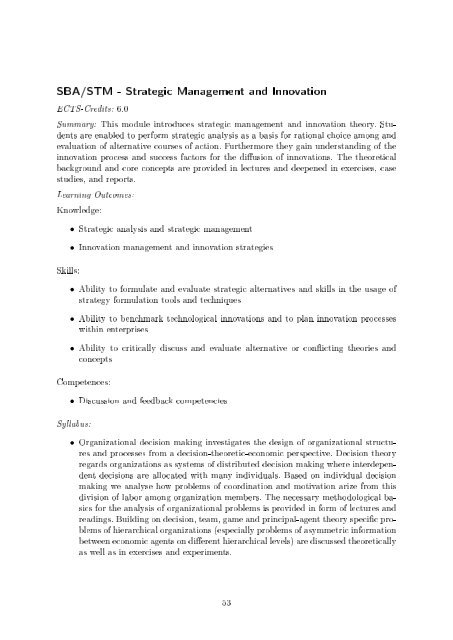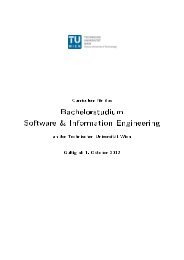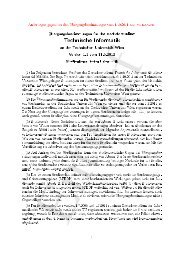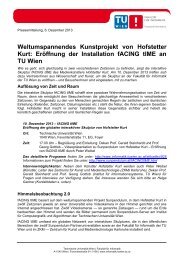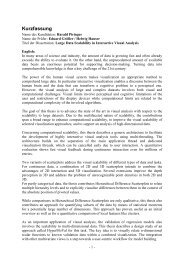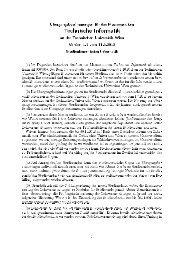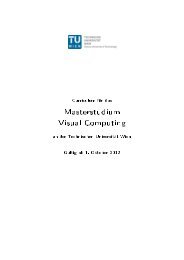Masterstudium Business Informatics - Fakultät für Informatik, TU Wien
Masterstudium Business Informatics - Fakultät für Informatik, TU Wien
Masterstudium Business Informatics - Fakultät für Informatik, TU Wien
You also want an ePaper? Increase the reach of your titles
YUMPU automatically turns print PDFs into web optimized ePapers that Google loves.
SBA/STM - Strategic Management and Innovation<br />
ECTS-Credits: 6.0<br />
Summary: This module introduces strategic management and innovation theory. Students<br />
are enabled to perform strategic analysis as a basis for rational choice among and<br />
evaluation of alternative courses of action. Furthermore they gain understanding of the<br />
innovation process and success factors for the diusion of innovations. The theoretical<br />
background and core concepts are provided in lectures and deepened in exercises, case<br />
studies, and reports.<br />
Learning Outcomes:<br />
Knowledge:<br />
Skills:<br />
• Strategic analysis and strategic management<br />
• Innovation management and innovation strategies<br />
• Ability to formulate and evaluate strategic alternatives and skills in the usage of<br />
strategy formulation tools and techniques<br />
• Ability to benchmark technological innovations and to plan innovation processes<br />
within enterprises<br />
• Ability to critically discuss and evaluate alternative or conicting theories and<br />
concepts<br />
Competences:<br />
• Discussion and feedback competencies<br />
Syllabus:<br />
• Organizational decision making investigates the design of organizational structures<br />
and processes from a decision-theoretic-economic perspective. Decision theory<br />
regards organizations as systems of distributed decision making where interdependent<br />
decisions are allocated with many individuals. Based on individual decision<br />
making we analyse how problems of coordination and motivation arize from this<br />
division of labor among organization members. The necessary methodological basics<br />
for the analysis of organizational problems is provided in form of lectures and<br />
readings. Building on decision, team, game and principal-agent theory specic problems<br />
of hierarchical organizations (especially problems of asymmetric information<br />
between economic agents on dierent hierarchical levels) are discussed theoretically<br />
as well as in exercises and experiments.<br />
53


